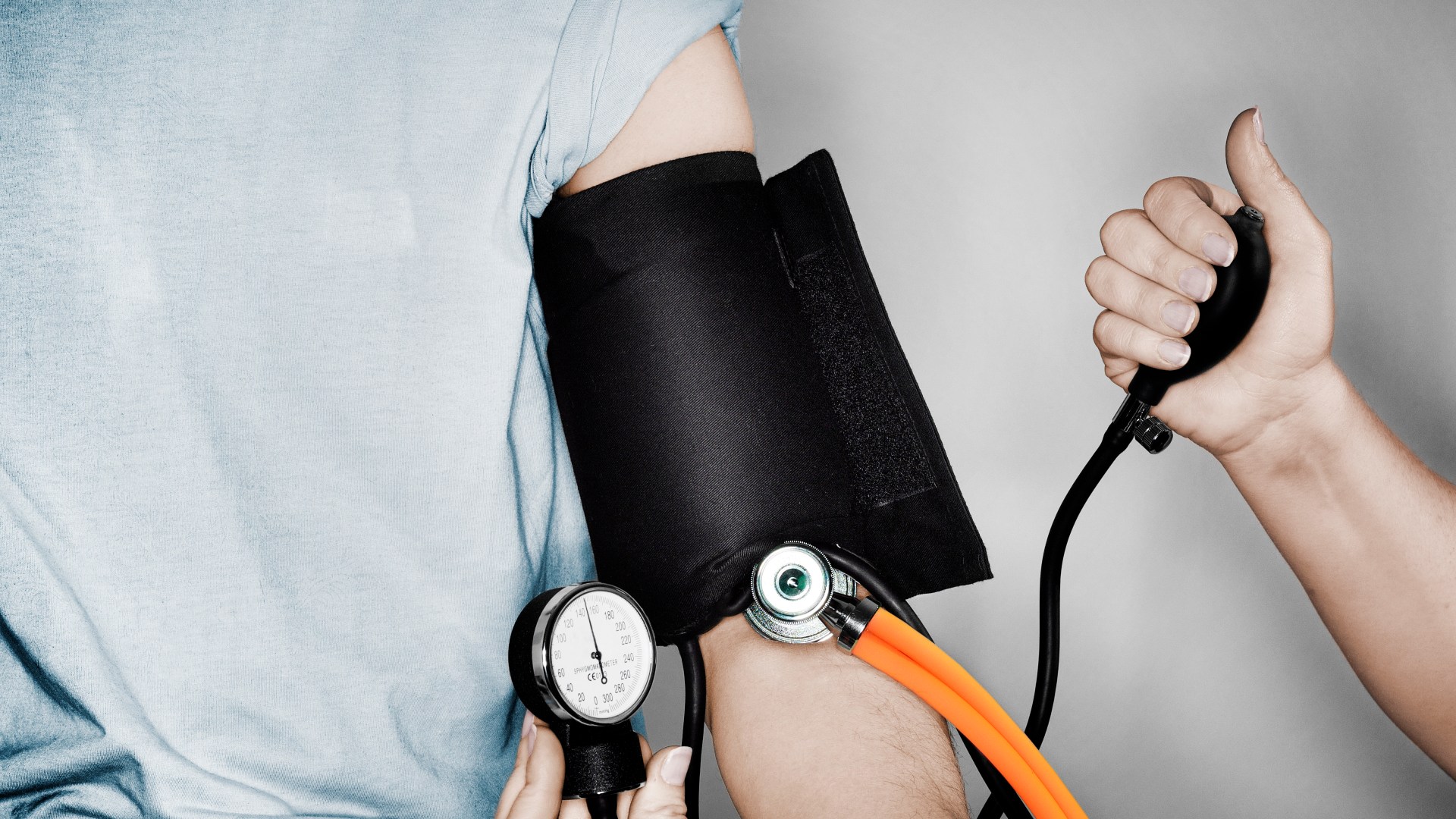WORKING in a noisy environment such as a factory raises the risk of high blood pressure, warns new research.
The danger increases 10 per cent for each year in employment on loud industrial machinery, scientists say.

2

2
Persistent noise exposure at work has already been linked to hearing loss and reduced concentration, plus physical and psychological stress.
But the new study found that in adult power loom weavers, chronic noise exposure not only hiked their blood pressure overall, but also each year of exposure increased their odds of the condition.
Study lead author Dr Golam Dastageer Prince said: “While the mechanism is still not well-explored, it is thought that the stress response by the body to chronic sound exposure causes hormonal imbalances that gradually leads to a permanent elevation of blood pressure.
“High blood pressure impacts more than a billion people worldwide and just one in five have it under control, yet it is a major cause of premature death.
“In addition to treating the high blood pressure through appropriate means, we must find ways to mitigate the exposure to the noise if we want to reduce the cardiovascular risk of these patients.”
Researchers at the Directorate of General Health Services (DGHS) in Bangladesh looked at 289 adult workers in selected weaving factories in the city of Narayanganj from January to December 2023.
Participants took part in a face-to-face interview to complete a questionnaire covering socio-demographic factors, behaviour, dietary habits and family medical history.
Blood pressure, height, weight and noise intensity were measured following standard procedures.
The participants were predominantly male, married and in their 30s, and a “notable” proportion were illiterate.
Scientists found that workplace exposure duration averaged nearly 16 years, with noise intensity ranging from 96 to 111 decibels (dB).
The recommended exposure limit for occupational noise is an average of 85 dB over an eight-hour workday, according to the National Institute for Occupational Safety and Health in the United States.
Sounds at or below 70 dB are generally considered safe.
A day-to-day conversation measures around 60 dB, while a washing machine or dishwasher averages 70.
A lawnmower comes in at around 90, and a live concert might clock 110.
Previous research has found that listening to any sound more than 120 can cause immediate hearing issues, and long-term damage.
As the study focused on workers exposed to more than 85 dB noise for long periods of time, any profession causing workers to experience similar exposure might experience similar blood pressure impacts
Dr Golam Dastageer Prince
Dr Prince, medical officer at DGHS Bangladesh, said none of the participants in the latest study were found to be wearing ear protection.
“Hopefully we can raise awareness of not only noise-induced hearing loss, but the impact of noise on blood pressure and workers’ behaviours and attitudes towards using personal protective equipment,” he added.
“Pushing for structural improvements to industries may also help us improve the health safety of these workers.”
The participants had a 31.5 per cent rate of high blood pressure, with an additional 53.3 per cent being pre-hypertensive – when it is higher than normal but not yet considered hypertension.
What is high blood pressure?
EVERY blood pressure reading consists of two numbers, shown as one number on top of the other, according to Blood Pressure UK.
The first (top) number is your systolic blood pressure – the force at which your heart pumps blood around your body.
The second (or bottom) number is your diastolic blood pressure – the resistance to the blood flow in the blood vessels between heartbeats when blood is pumped around your heart.
An ideal blood pressure reading is between 90/60mmHg (millimetres of mercury) and 120/80mmHg.
You have high blood pressure if your readings are consistently above 140/90mmHg.
If you’re over the age of 80, high blood pressure is considered to be from 150/90mmHg.
If your blood pressure is too high, it puts extra strain on your blood vessels, heart and other organs, such as the brain, kidneys and eyes, the NHS says.
Persistent high blood pressure can increase your risk of a number of serious and potentially life-threatening health conditions, such as:
If you have high blood pressure, reducing it even a small amount can help lower your risk of these health conditions.
Doctors can help you keep yours at safe levels with lifestyle changes and medication.
You might be more at risk if you:
- Are overweight
- Eat too much salt and do not eat enough fruit and vegetables
- Do not do enough exercise
- Drink too much alcohol or coffee (or other caffeine-based drinks)
- Smoke
- Have a lot of stress
- Are over 65 years old
- Have a relative with high blood pressure
- Are of black African or Black Caribbean descent
- Live in a deprived area
The study also found a positive correlation between blood pressure and noise exposure duration.
Each year of exposure was found to increase high blood pressure odds by 10 per cent, even after adjusting for age, body mass index (BMI) and whether the participants smoked or not.
Dr Prince said: “As the study focused on workers exposed to more than 85 dB noise for long periods of time, any profession causing workers to experience similar exposure might experience similar blood pressure impacts.
“We definitely need more exploratory studies to reveal more information about the potential mechanisms and long-term health outcomes.”
Other at-risk jobs
Other jobs regularly exposed to more than 85 dB throughout the working day include emergency services, police officers, bar staff, tree surgeons, construction workers, DJs, labourers, ambulance workers, farmers, electricians, night club staff, iron workers, welders and gardeners, according to research by the University of Michigan.
Bin workers, cleaners and hairdressers were on the borderline.
Dr Prince said other recent studies have shown that living near noise pollution – including busy roads, trains and air traffic – can have an impact on cardiovascular health.
But the current study may not apply to noise experienced during daily life.
He said noise pollution experienced near home usually ebbs and flows, while the industrial exposures in the study are typically continuous in pattern due to the machinery and remain at a constant sound level.
The findings are due to be presented at the American College of Cardiology (ACC) Asia 2024 conference in Delhi, India.
The 13 jobs most likely to leave you deaf
WHEN it comes to noise, consistently being exposed to anything measuring more than 70 dB is considered dangerous for your hearing.
Research found these are the loudest jobs and the level of noise you can expect to pick up whilst working:
- Emergency services (average 114 dB)
- Police officer (110dB)
- Bar staff (102 dB) & tree surgeon (102 dB)
- Construction worker (99.3 dB)
- DJ (99 dB) & labourer (99 dB)
- Ambulance worker (97 dB)
- Farmer (96 dB) & electrician (96 dB)
- Night club worker (93 dB)
- Iron worker (92 dB)
- Welder (91 dB)
- Gardener (85.3 dB)
- Binman (78 dB)
- Cleaner (75 dB) & hairdresser (75 dB)
Workers exposed for long periods of time are most at risk of damaged hearing, compared to those in other jobs.
Nick Higginson, CEO of Phoenix Health and Safety, said: “A construction site is a very loud workplace, with all manner of noises caused by machinery, movement of materials and communication between workers.
“Whilst you wouldn’t typically see an immediate negative impact to your hearing from running a vacuum cleaner or hairdryer on, over long periods of time this can take its toll and increase the risk the likelihood of ear damage such as tinnitus, so it’s important to be careful when working in these jobs.”
Source: University of Michigan




